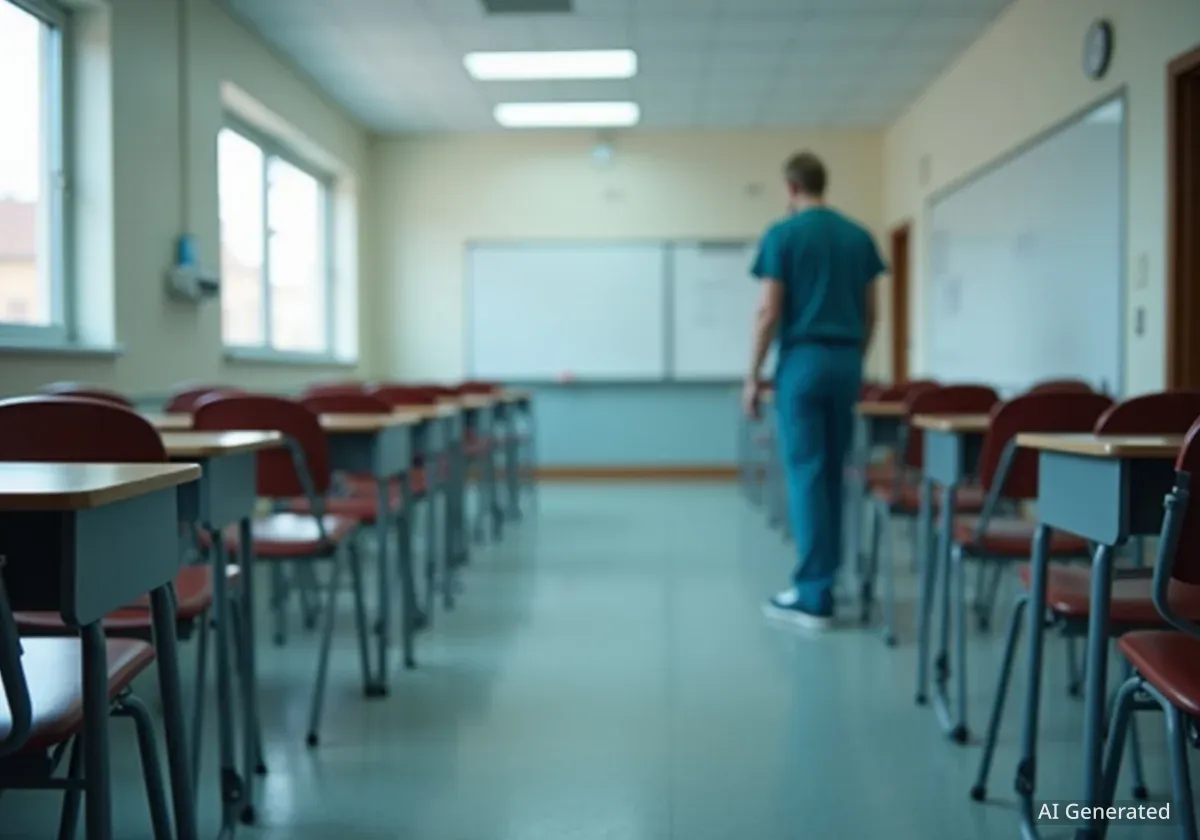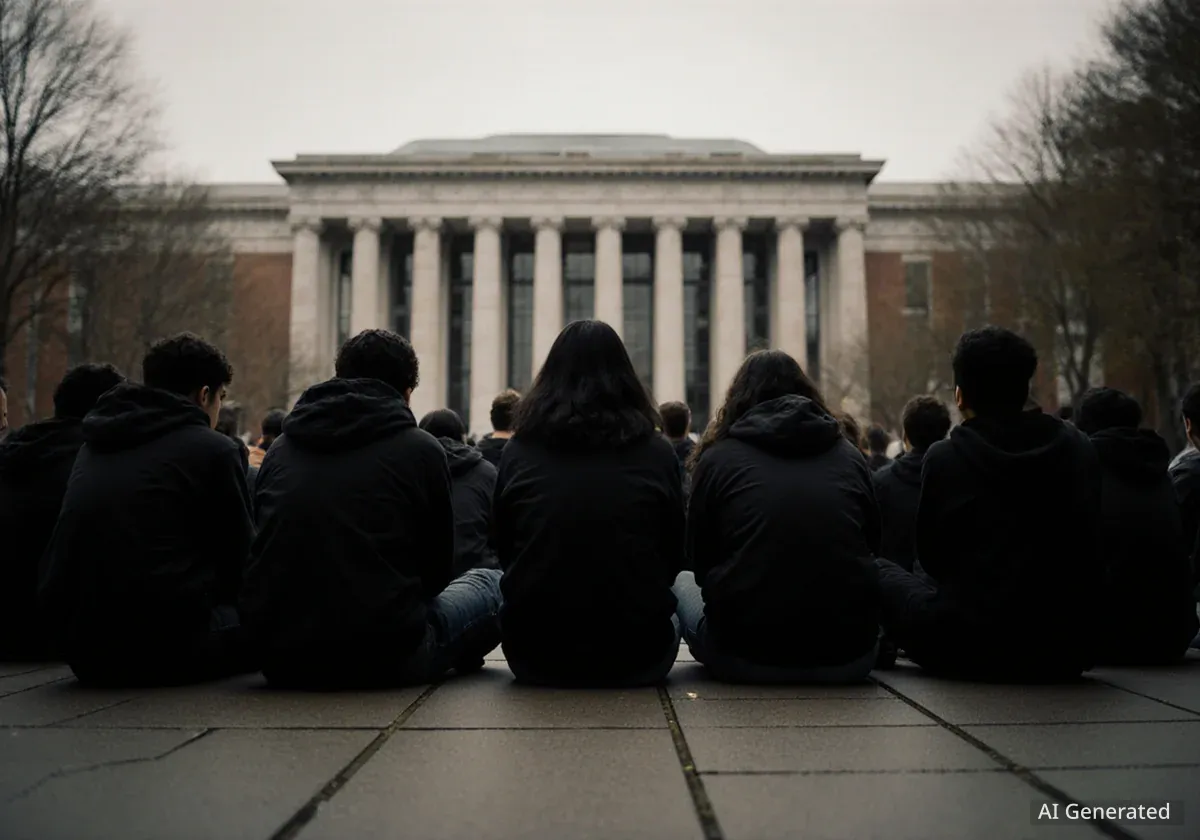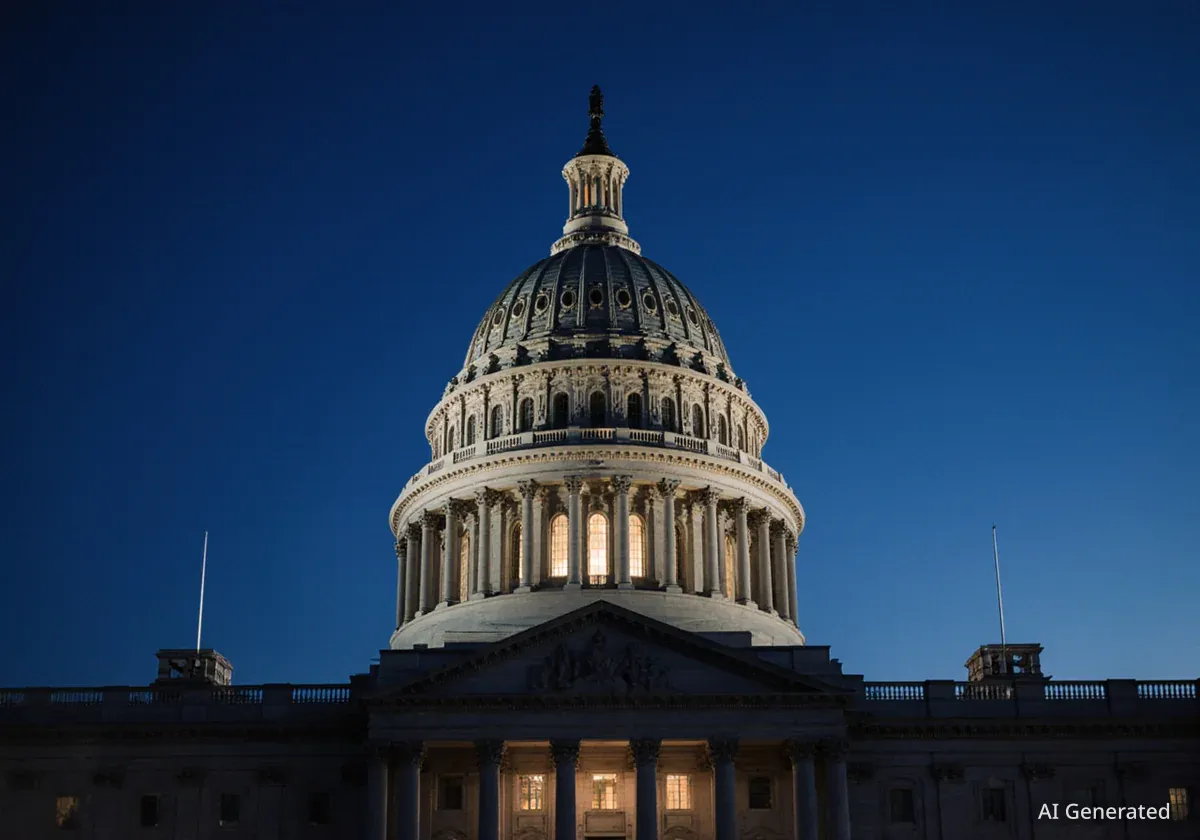Minnesota is facing significant challenges in maintaining public services as a series of federal administrative actions have resulted in paused grants, staff reductions, and canceled funding. These issues are compounded by local crises, including major cyberattacks on school districts and rising costs for residents, creating a complex situation for state and local officials.
Key Takeaways
- At least 24 federal grants to Minnesota for programs in public health, security, and education have been paused or terminated by the Trump administration.
- Rochester Public Schools is navigating a multi-faceted crisis, including a ransomware attack, a denied $1.9 million federal grant, and proposed school closures.
- Federal staff reductions are affecting key services, with cuts at Social Security offices and the elimination of the entire staff for a low-income energy assistance program.
- Residents may face higher health insurance premiums as federal subsidies have not been extended by Congress.
Federal Funding and Grant Disruptions
State officials in Minnesota report that a minimum of 24 federal grants have been either paused or terminated following directives from the Trump administration. These grants cover a wide range of essential services, impacting public safety, health, and infrastructure.
The affected funding streams include grants from the Federal Emergency Management Agency (FEMA), the Department of Homeland Security, and programs dedicated to cybersecurity. The abrupt halt to this funding raises concerns about the state's ability to respond to emergencies and protect its digital infrastructure.
Widespread Impact on State Programs
The terminated grants are not isolated to one sector. The disruption affects everything from emergency preparedness initiatives to public health campaigns, forcing state agencies to re-evaluate budgets and service delivery with significantly fewer resources.
Healthcare and Social Services Under Pressure
The healthcare sector has experienced direct consequences. Several COVID-19 vaccination clinics across the Twin Cities were canceled after $226 million in federal health funding was abruptly withdrawn. This action complicates ongoing public health efforts and access to preventative care.
Furthermore, Minnesota residents are being advised by the Commerce Department to prepare for higher health insurance costs. The warning comes as Congress has not approved an extension of federal assistance programs designed to lower insurance premiums, potentially increasing financial burdens on families.
Social Security services are also facing strain. Congressional data reveals that Social Security Administration offices in Alexandria and Rochester are slated for staff reductions of up to 50%. These cuts are expected to lead to longer wait times and reduced service capacity for seniors and other beneficiaries.
Education Sector Faces Multiple Crises
The education system, particularly Rochester Public Schools, is contending with a combination of financial and operational challenges. The district has been at the center of several recent disruptive events, highlighting the vulnerabilities faced by public schools.
Rochester's Financial Setback
The Trump administration denied Rochester Public Schools a $1.9 million mental health grant, citing the district's diversity, equity, and inclusion (DEI) initiatives. The administration has threatened to withhold federal funding from schools that do not comply with its order regarding such programs, which Minnesota officials argue illegally bypasses Congress.
Cybersecurity Threats Paralyze Schools
Operations at Rochester Public Schools were recently halted due to what was initially described as "unusual activity" in its technology network. The district confirmed the incident was a ransomware attack, prompting an investigation by the FBI.
The cyberattack forced the district to close for a day and prepare for classes to resume with limited or no access to technology. This event mirrors a similar, recent cyberattack on Minneapolis Public Schools, indicating a growing threat to educational institutions across the state.
"The increasing frequency of ransomware attacks on public school systems demonstrates a critical need for enhanced cybersecurity infrastructure and federal support to protect student data and educational continuity."
Proposed Closures and Restructuring
In addition to the grant denial and cyberattack, the Rochester school district is considering significant structural changes. A proposed plan, set for discussion at a school board meeting, includes the potential closure of three schools and the redistricting of others. These measures are often considered in response to budget shortfalls and changing enrollment numbers, issues that are exacerbated by the loss of federal funding.
Energy Assistance Program Gutted
Low-income families in Minnesota may face delays in receiving help with their energy bills. This follows reports that the Trump administration laid off the entire staff at the Low-Income Home Energy Assistance Program (LIHEAP), a key federal initiative that helps vulnerable households afford heating and cooling.
The Citizens Utility Board of Minnesota has expressed concern over the move. With the program's staff eliminated, the distribution of funds and the processing of applications could be severely hampered, leaving many families without crucial support as winter approaches.
- Staff Elimination: The entire federal team managing LIHEAP was reportedly laid off.
- Potential Delays: Without administrative staff, the flow of assistance funds to states like Minnesota is at risk.
- Community Impact: The program is a critical lifeline for low-income seniors, families with children, and individuals with disabilities.
The combination of these federal actions and local emergencies creates a challenging environment for Minnesota's public sector. Officials at both the state and local levels are now tasked with finding solutions to bridge funding gaps, enhance security, and continue providing essential services to residents amidst growing uncertainty.





